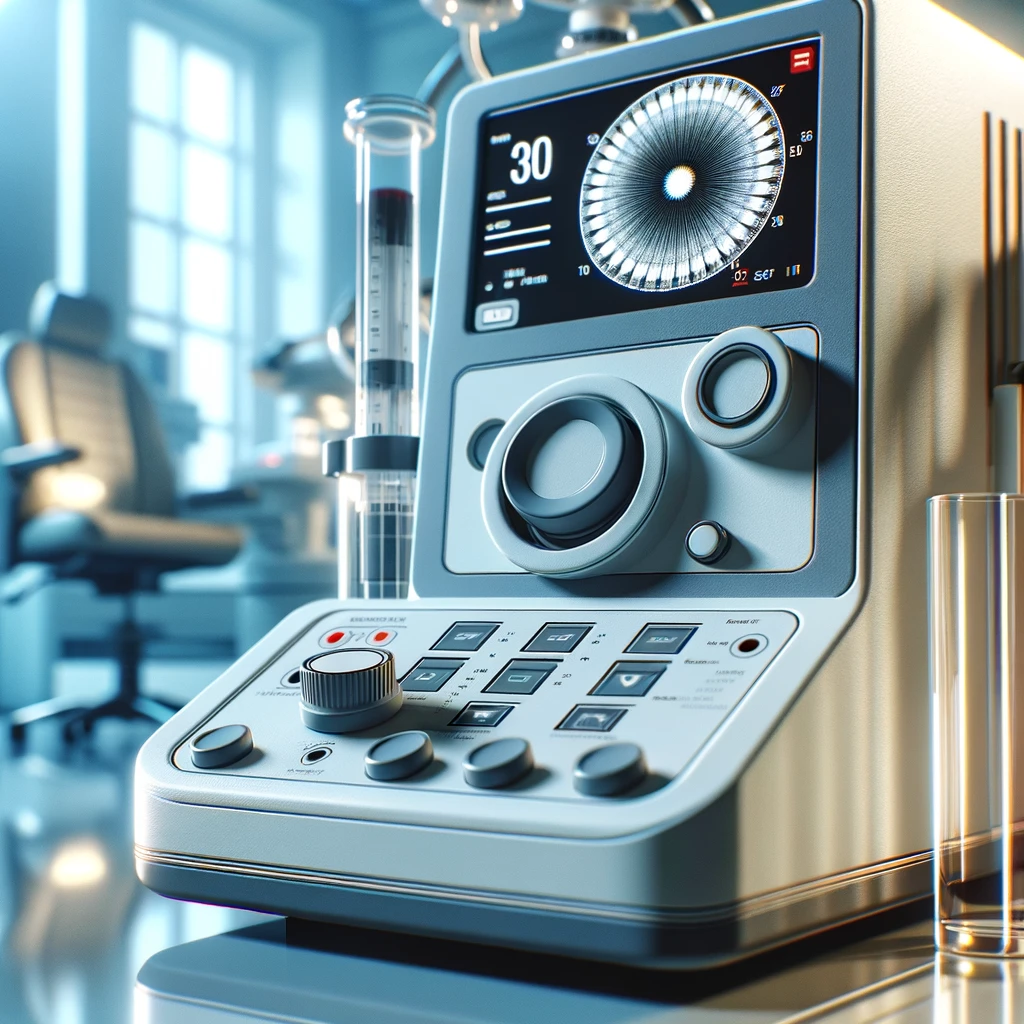After a car accident, questions often arise about whether hospitals will conduct drug testing. In many traffic incidents, determining the influence of substances can play a role in the medical and legal response. Here we explain how drug testing may occur after an accident, including the legal framework and process involved.
Understanding what to expect after an accident can help you feel more prepared. Read on for important insights about medical and legal process post-accident procedures.
Key Takeaways
- Hospitals may conduct drug tests if there is reason to believe drugs or alcohol contributed to the crash..
- Test results may impact legal proceedings, insurance claims, and workers’ compensation.
- You may need to give consent for a drug test, unless you’re seriously injured or specific laws allow testing without your permission.
- A failed drug test may lead to criminal charges or civil liability (fines), depending on the circumstances.
- If you are involved in an accident that involves suspected impairment, stay at the scene and seek legal help immediately.
Understanding Drug Tests After Car Accidents
Hospitals sometimes test for drugs if they think substances may have played a role in an accident. These tests typically check for things like marijuana, cocaine, or prescription meds that might impair driving.
Blood and urine are common samples used for these screenings. A blood test can show what’s currently in the body, while a urine test might indicate past drug use.
Drug testing after an accident can help determine whether impairment played a role in the crash. The results can have a major impact on both legal proceedings and insurance claims. Law enforcement may use the test results when deciding whether to pursue DUI charges.
Insurance companies also review drug or alcohol test results when evaluating liability and coverage. A positive test may even affect workers’ compensation benefits if the accident occurred on the job.
Frequency and Necessity of Post-Accident Drug Tests
Drug testing after an accident doesn’t happen in every case — it depends on the situation. Understanding when and why testing occurs can help clarify how liability is determined and how public safety concerns are addressed.
Hospitals in the U.S. may perform drug tests to meet legal requirements or follow internal protocols, especially if there’s reason to believe drugs or alcohol played a role in the crash.
Mandatory Drug Tests
Mandatory drug testing after an accident is rare, but there are specific situations where it may be required or strongly recommended. Here’s when testing is more likely:
- Federal laws sometimes require drug tests. This occurs for commercial drivers under the guidelines of the Federal Motor Carrier Safety Administration.
- Certain jobs require mandatory testing in the event of an accident during work hours, especially when safety is a primary concern.
- Doctors may order a test if they suspect drugs or alcohol played a role in an accident.
- A blood sample will not be taken just to check for drugs unless there’s a strong medical reason.
- Police can request that hospitals conduct drug tests if they have probable cause to believe a driver was under the influence.
- Consent from the patient is generally needed before any test. Refusal might result in legal actions or license suspension due to implied consent laws.
- Tests include checking for substances like alcohol, illegal drugs, and prescription medications that impair driving.
- Employees who drive as part of their job might be contractually obligated to agree to post-accident testing.
- Serious accidents often lead to testing because intoxication raises questions about recklessness and liability.
How Often Do Drug Tests Happen After a Car Accident?
Drug testing after an accident doesn’t happen in every case — it depends on the situation. Understanding when and why testing occurs can help clarify how liability is determined and how public safety concerns are addressed.
Hospitals in the U.S. may perform drug tests to meet legal requirements or follow internal protocols, especially if there’s reason to believe drugs or alcohol played a role in the crash.
How Drug Testing Works in the Hospital After a Crash
If doctors think drugs or alcohol may have played a role in a car accident, they might order a drug test once the patient arrives at the hospital. Testing typically occurs after any urgent medical needs have been addressed.
Here’s how the process typically works:
-
Consent Comes First: Whenever possible, hospital staff will obtain the patient’s permission before administering a drug or alcohol test. However, if the person is unconscious or seriously injured, testing may proceed under implied consent laws or emergency exceptions.
-
Sample Collection: Nurses or lab technicians collect blood or urine samples using strict protocols to ensure accuracy and legal validity.
-
Lab Analysis: The samples are then sent to a lab to test for substances like alcohol, illegal drugs, or impairing prescription medications.
-
Why It Matters: The results can significantly impact what happens next — from criminal charges to insurance decisions or even employment issues, depending on the circumstances.
How Often Are These Tests Done?
Contrary to popular belief, drug testing after a crash isn’t automatic. It depends on the situation.
Here’s when testing usually happens:
- If you’re a commercial driver, you’re subject to federal rules that require testing.
- If you were working when the crash happened, your employer might require a test.
- If a doctor or police officer suspects impairment, they can order a test.
- If state law requires it after a serious or fatal crash.
- If the hospital’s internal policy says so for injury-related cases.
- If your insurance company requests it during a claim review.
- If you have a past DUI, testing may be more likely.
- If the accident was severe, drug use is often one of the first things ruled out.
Legal Implications of Post-Accident Drug Tests
Post-accident drug test results can have a big impact on both criminal and civil outcomes. Whether you’re in the hospital or under investigation, what shows up on those tests can influence everything from DUI charges to liability in a lawsuit.
Consequences of Failing the Test
If you test positive for drugs or alcohol after a car accident, the consequences can be serious — especially if the crash involved injuries or property damage.
Here’s what could happen:
-
Criminal Charges: A positive result can lead to charges like Driving Under the Influence (DUI) or Driving While Ability Impaired (DWAI) in New York.
-
License Suspension or Revocation: In many cases, failing a test may result in your driver’s license being suspended, even before a criminal trial.
-
Civil Liability: If someone was hurt or property was damaged, courts may view drug impairment as a factor in assigning blame. This can increase your financial responsibility in a personal injury or property damage claim.
-
Insurance Consequences: Your insurer may reduce or deny coverage if you were impaired at the time of the crash. This can affect not only payouts but your future rates or even eligibility for coverage.
-
Jail Time or Fines: Depending on the severity of the accident and your prior record, criminal penalties could include jail time or substantial fines.
That said, a failed test doesn’t automatically mean you caused the accident. But it will almost certainly be part of the investigation — and both courts and insurance companies will take it seriously when deciding liability and damages.
Know Your Rights: Drug Testing and the Fourth Amendment
If you’re asked to take a drug test after a car accident, it’s important to understand your rights — especially your protections under the Fourth Amendment of the U.S. Constitution. This amendment protects individuals from unreasonable searches and seizures, including drug or alcohol testing.
Can Hospitals Just Test Everyone After a Crash?
No. Hospitals can’t automatically test every crash victim for drugs or alcohol. In most cases, they need your consent or a warrant — unless there’s a medical emergency or other urgent situation.
When Police Are Involved
If police believe someone involved in the crash may have been driving under the influence, they might request a breath test or a blood draw. However, they must have reasonable suspicion or probable cause to do so, and they’re still required to follow proper legal procedures.
What About Unconscious Drivers?
In the U.S. Supreme Court case Mitchell v. Wisconsin, the Court ruled that in some cases, testing an unconscious driver without a warrant can be allowed — especially if there’s no time to get one and evidence of impairment may disappear.
Why This Matters
Testing positive can result in criminal charges, license suspension, and other legal or financial penalties. However, knowing your rights helps protect you from unlawful or overly broad testing.
If you’re facing a drug test after a crash, especially if police are involved, it’s a good idea to speak with an attorney who understands both DUI law and your constitutional rights. What you do (or don’t do) next can make a big difference.
The Role of Law Enforcement in Post-Accident Drug Testing
Law enforcement officers play a critical role in determining the need for drug testing following an auto accident, often based on observable signs of impairment or the specifics of the incident—discover how their involvement shapes outcomes and legal consequences.
Officer’s Role at the Accident Scene
Officers at the accident scene have several critical duties. They ensure everyone’s safety and provide medical assistance if needed. Gathering facts for the report comes next. Officers take notes and collect evidence to understand what happened.
They also look for signs that drivers may be under the influence. If they suspect a driver is impaired, they will administer field sobriety tests on the spot. Depending on these results, officers might ask for a blood or urine test to check for drugs or alcohol in someone’s system.
Their work helps determine who was at fault in the crash and whether any laws were broken.
Instances when a DUI Blood or Breath Test is Required
Police may ask for a DUI blood or breath test after a car crash. This helps them know if drugs or alcohol caused the accident. Here are times when these tests are needed:
- The driver shows signs of being drunk or high, like slurred speech or trouble walking.
- There was a serious crash with injuries or death, and police think impairment might be involved.
- A driver admits to drinking alcohol or using drugs before getting behind the wheel.
- An officer sees alcohol, drugs, or drug paraphernalia in the car during a traffic stop.
- The person driving failed field sobriety tests, such as walking in a straight line.
- The vehicle was moving strangely, as if swerving or speeding, before the crash occurred.
- Someone has been arrested for driving under the influence (DUI) and refuses field sobriety testing.
- If there’s a hit-and-run incident and the suspect is caught, they might be tested for substances.
Liability for Driving Under the Influence in a Car Accident
If a driver is under the influence of drugs or alcohol at the time of an accident, the legal consequences can be serious. A positive test result may be used to establish fault, and that can lead to both criminal charges and civil liability.
In civil cases, being under the influence doesn’t just mean breaking the law — it can also mean being held financially responsible for damages, including injuries to others or damage to property. Even if a driver “felt fine,” their blood alcohol content (BAC) or the presence of impairing substances may still exceed legal limits.
Drivers under the influence can face serious legal trouble after a car accident. If tests show drugs or alcohol, they might be responsible for the crash. This could mean paying for damages or injuries caused.
What Can the Court Order?
If the court finds that impaired driving contributed to the accident, the driver may be ordered to pay:
- Medical bills
- Property damage (e.g., vehicle repairs)
- Lost income
- Pain and suffering (known as non-economic damages)
And on top of civil claims, impaired drivers can also face DUI or DWI charges, which may result in fines, license suspension, or even jail time.
What to Do After a Drug- or Alcohol-Related Accident
If you’re involved in an accident where drug or alcohol use may be a factor — whether it’s you or another driver — your actions at the scene can significantly affect your safety and any future legal claims.
Here’s what to do:
- Stay at the scene – Leaving could result in serious charges, such as hit-and-run.
- Check for injuries – Make sure everyone involved is okay and call for medical help if needed.
- Call the police – Officers will document the scene and may conduct sobriety tests.
- Avoid admitting fault – Don’t say anything that could be used against you later.
- Exchange info – Collect names, insurance details, and contact info from other drivers.
- Take photos – Document the scene, vehicle damage, road signs, and any visible injuries.
- Get witness details – Bystanders can help verify what happened.
- Seek medical care – Some injuries show up hours or days later.
- Notify your insurer – Report the accident, but stick to the facts and avoid speculation.
- Contact an attorney – Especially if a DUI is involved. Speak to a lawyer who understands how these cases work in New York.
Conclusion
Hospitals may test for drugs or alcohol after a crash to understand whether impairment contributed to the accident or to help with medical treatment. Police and insurance companies also rely on these results to determine fault and coverage.
Keep in mind: a positive drug test does not automatically mean you’re at fault, but it can have a major impact on the legal and financial outcome of your case. If you’ve been involved in a car accident in New York City — especially one involving suspected impairment — it’s important to get legal guidance early on.
For a free consultation, contact The Orlow Firm today at (646) 647-3398. We’re here to help you understand your rights and explore your legal options.












